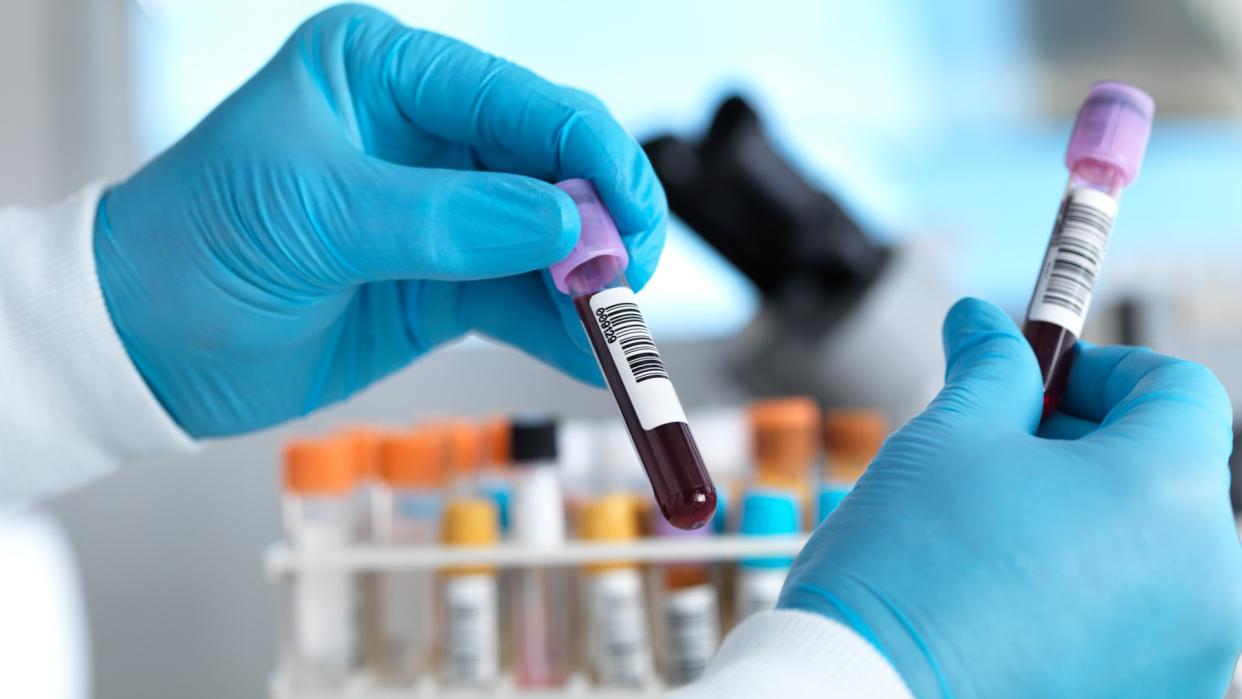How a new blood test could revolutionise sepsis diagnosis

A new blood test could quickly diagnose those at risk of sepsis and bring a 'paradigm shift' in treatment, according to early results from a clinical trial.
The "low–cost" test takes just 45 minutes to identify "high levels of DNA fragments associated with sepsis", according to a statement from Guy's and St Thomas' NHS Foundation Trust (GSTT), where the year-long trial began in November.
"Detecting sepsis early is critical to saving lives," said Dr Andrew Retter, care consultant at Guy's and St Thomas's and leader of the study. "Sepsis is the number one cause of death in hospitals and mortality increases as much as 8% for every hour that treatment is delayed."
Being able to spot patients most at risk with a simple blood test would be a "paradigm shift" in the field, he said, and could save thousands of lives.
An inquest in September into the death of 20–year–old student Maddy Lawrence found that hospital staff in Bristol missed that she had developed sepsis after a sports injury. Coroner Peter Harrowing said there were "gross" failures in her care, The Guardian reported.
What is sepsis?
Sometimes called septicaemia or blood poisoning, sepsis is a life-threatening bodily response.
Sepsis is "one of the biggest causes of avoidable harm and death" in the UK, said Dr Ron Daniels, founder and joint CEO of the UK Sepsis Trust. Five people die with sepsis every hour in the UK, according to the trust. That's 48,000 people per year.
It arises when the body's immune system wrongly "overreacts to an infection", according to the NHS. It then accidentally "starts to damage [the] body's own tissues and organs" instead.
In September, the government committed to introducing a new hospital system called Martha's Rule, giving patients and their families in England the right to a second medical opinion. It is named after Martha Mills, who died in 2021 from sepsis aged 13 after doctors failed to admit her to intensive care.
How will the test work?
A neutrophil is a type of immune cell always circulating in the blood, "constantly searching for signs of infection", said Medical News Today. When the body is infected, neutrophils "quickly respond" to try to fight it.
In doing so, neutrophils release "spider–like–webs of DNA in an attempt to trap infections and prevent them spreading further", said GSTT. These structures, called neutrophil extracellular traps (NETs), "entangle" and "immobilise" infections, according to a 2012 study in the Journal of Immunology.
Sepsis happens when the body has an overexaggerated response to infection. Neutrophils overreact in their attempt to fight off infection, and produce too many NETs. This, rather than fighting the infection, can actually lead to the organ damage that characterises sepsis.
The new test identifies a protein found in NETs, and measures levels of it in the blood. This indicates if someone has too many NETs and thus if they're more likely to have or develop sepsis.
Volition, a diagnostics company, was investigating how to spot cancer in blood samples when it detected NETs instead. The company funded the trial of the test, which will examine the protein levels of 500 patients with sepsis or septic shock (the most severe form of the condition) in the intensive care unit at St Thomas' hospital.
Study leaders will compare the effectiveness of the new test to the standard blood tests used currently by clinicians, which "cannot diagnose sepsis in isolation", GSTT explains. No additional blood will need to be taken for the study – trials will be incorporated into the existing testing process.
Volition's discovery "will draw comparisons with Alexander Fleming", said The Sunday Times, who discovered penicillin when he accidentally left unwashed Petri dishes in his lab while he went on holiday in 1928.
How might the new test help?
"Delays in diagnosis result not only in lives lost, and not only in increased cost of care, but also in poor outcomes for survivors, including disability," said Dr Daniels, the UK Sepsis Trust chief.
"If this research demonstrates that NET proteins fulfil their promise as a risk tool, lives will undoubtedly be saved."
"A test like this at the point of care in A&E, for example, could remove the uncertainty about sepsis which presents differently in different people," Melissa Mead, whose one-year-old son William died in December 2014 after signs of sepsis were missed by the NHS, told The Sunday Times. That could "give people a chance at life that my son never had".

